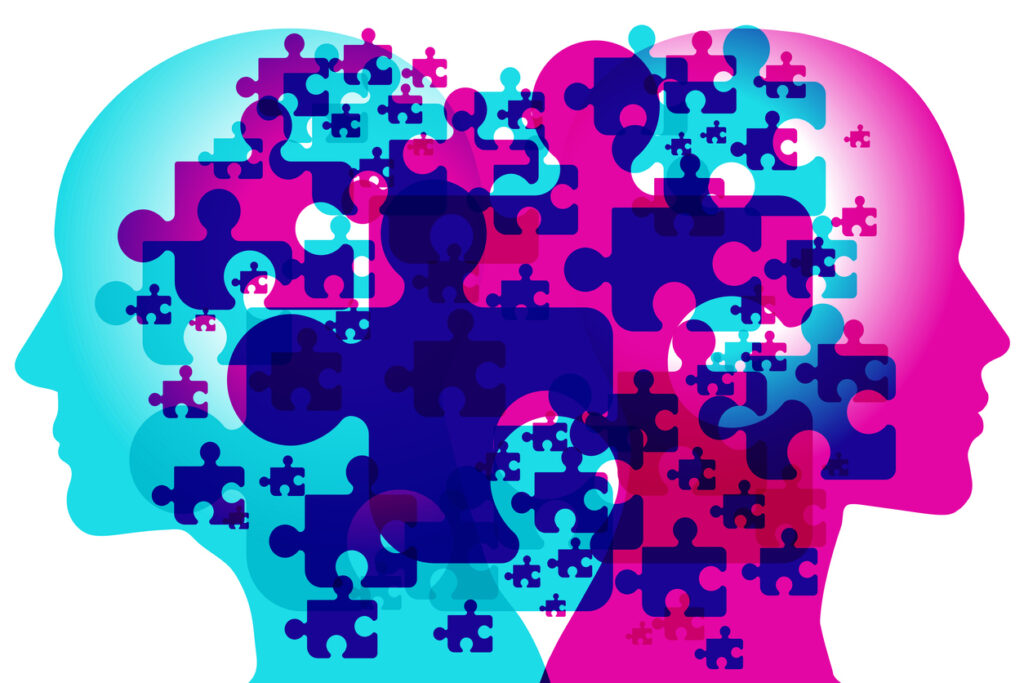The modern workforce represents a cross section of multigenerational attitudes. So it’s essential to find commonality in human experience and explore the potential of emotional intelligence.
We’ve all heard many ways in which the economy was, and still sees, impact from the notable population numbers of Baby Boomers, those born between 1946 and 1964. It’s been nearly a decade since authors such as Meister and Willyerd reported the 2020 workforce would soon see one of the highest levels of age diversity we’ve ever known.
It is an increasing reality that most workplaces today now have five generations working side by side. These include Traditionalists (born before 1946), Baby Boomers (born 1946-1964), Generation X (born 1965-1976), Millennials (born 1977-1997) and Generation 2020 (born after 1997).
Generational differences in the workplace highlight the need for effective employee motivation.
On the one hand, this tremendous diversity means organisations have access to valuable experience longer than they used to, while acquiring talent across new generations, leading to notable growth in age diversity in the workforce.
On the other hand, this phenomenon has created previously unknown challenges for businesses and managers as they navigate a multi-generational workforce. In particular, generational differences in the workplace highlight the need for effective employee motivation.
Changing times
In the classical perspective of management, an analytical and rational approach was often used. This meant that managers placed less emphasis on certain facets of their employee’s lives, such as employee’s emotions, work-life balance and general wellbeing.
It is crucial for organisations today to recognise that employee motivation goes well beyond the usual monetary reward systems
As the change in generations has set in, the criticality of employee motivation has risen. It is crucial for organisations today to recognise that employee motivation goes well beyond the usual monetary reward systems, particularly in a multigenerational workforce.
To motivate employees in today’s economy, companies have to engage at a completely new level, which can be achieved by incorporating emotional intelligence.
Bridging the divide
Emotional intelligence has emerged as a measurable skill and one that is an invaluable addition to the manager’s toolset. When honed, social and emotional intelligence can equip managers with the expertise and knowledge necessary to turn the challenges of generational differences in the workplace into positives.
Managers who have developed a certain level of emotional intelligence have a greater awareness of others. Such managers are able to quickly determine their employees’ needs and respond to them efficiently.
Emotional intelligence increases the manager’s ability to recognise social cues and respond appropriately.
For instance, it enables them to be able to provide their employees with regular effective feedback, giving the employees an opportunity to improve their performance in the organisation.
Moreover, emotional intelligence increases the manager’s ability to recognise social cues and respond appropriately in a manner that makes evident their empathy of others’ perspectives.
Becoming a better manager
Emotionally intelligent managers are better equipped to have a deeper understanding of what motivates individuals and how to optimise the diversity inherent in a multigenerational workforce.
While the values of a culture and of society may change over time, the underlying structure of human personality does not.
In addition to improving the understanding of employee needs and employee motivation, emotional intelligence enhances employee productivity, job satisfaction and leadership competency; in addition, it creates mutual employee-employer relationships, which in turn, increase commitment. These skills assist managers in attending to individual employee needs irrespective of their generation.
While the values of a culture and of society may change over time, the underlying structure of human personality does not. Once we understand the differences between generations, it becomes much easier to see how people across the generations can work together productively.
However, focusing on individuals rather than generational silos is what will make the difference. With an understanding of individual differences through the lens of personality, rather than age, we can lean into greater insights to help us appreciate and make positive use of those differences.
Success in a multigenerational age
In my experience, building stronger workplace relationships has less to do with our differences, generational or otherwise and more to do with having the desire and the tools to recognise and appreciate others and ourselves.
When people with different backgrounds cooperate, creativity and innovation happens.
Evidently, emotional and social intelligence have the potential to positively affect employees’ behaviours with outcomes such as job satisfaction, positive work attitudes, self-efficacy and leadership potential and change management.
When people with different backgrounds cooperate, creativity and innovation happens. The result from this diversity in the workplace is that people learn how to communicate and generate ideas that usually create high-impact change with low economic and emotional risk and high economic and emotional gain.
Given such diverse outcomes, social and emotional intelligence become key success factors for organisations in a multigenerational era.
The modern workforce represents a cross section of multigenerational attitudes. So it's essential to find commonality in human experience and explore the potential of emotional intelligence.
We’ve all heard many ways in which the economy was, and still sees, impact from the notable population numbers of Baby Boomers, those born between 1946 and 1964. It’s been nearly a decade since authors such as Meister and Willyerd reported the 2020 workforce would soon see one of the highest levels of age diversity we’ve ever known.
It is an increasing reality that most workplaces today now have five generations working side by side. These include Traditionalists (born before 1946), Baby Boomers (born 1946-1964), Generation X (born 1965-1976), Millennials (born 1977-1997) and Generation 2020 (born after 1997).
Generational differences in the workplace highlight the need for effective employee motivation.
On the one hand, this tremendous diversity means organisations have access to valuable experience longer than they used to, while acquiring talent across new generations, leading to notable growth in age diversity in the workforce.
On the other hand, this phenomenon has created previously unknown challenges for businesses and managers as they navigate a multi-generational workforce. In particular, generational differences in the workplace highlight the need for effective employee motivation.
Changing times
In the classical perspective of management, an analytical and rational approach was often used. This meant that managers placed less emphasis on certain facets of their employee’s lives, such as employee’s emotions, work-life balance and general wellbeing.
It is crucial for organisations today to recognise that employee motivation goes well beyond the usual monetary reward systems
As the change in generations has set in, the criticality of employee motivation has risen. It is crucial for organisations today to recognise that employee motivation goes well beyond the usual monetary reward systems, particularly in a multigenerational workforce.
To motivate employees in today’s economy, companies have to engage at a completely new level, which can be achieved by incorporating emotional intelligence.
Bridging the divide
Emotional intelligence has emerged as a measurable skill and one that is an invaluable addition to the manager’s toolset. When honed, social and emotional intelligence can equip managers with the expertise and knowledge necessary to turn the challenges of generational differences in the workplace into positives.
Managers who have developed a certain level of emotional intelligence have a greater awareness of others. Such managers are able to quickly determine their employees’ needs and respond to them efficiently.
Emotional intelligence increases the manager’s ability to recognise social cues and respond appropriately.
For instance, it enables them to be able to provide their employees with regular effective feedback, giving the employees an opportunity to improve their performance in the organisation.
Moreover, emotional intelligence increases the manager’s ability to recognise social cues and respond appropriately in a manner that makes evident their empathy of others’ perspectives.
Becoming a better manager
Emotionally intelligent managers are better equipped to have a deeper understanding of what motivates individuals and how to optimise the diversity inherent in a multigenerational workforce.
While the values of a culture and of society may change over time, the underlying structure of human personality does not.
In addition to improving the understanding of employee needs and employee motivation, emotional intelligence enhances employee productivity, job satisfaction and leadership competency; in addition, it creates mutual employee-employer relationships, which in turn, increase commitment. These skills assist managers in attending to individual employee needs irrespective of their generation.
While the values of a culture and of society may change over time, the underlying structure of human personality does not. Once we understand the differences between generations, it becomes much easier to see how people across the generations can work together productively.
However, focusing on individuals rather than generational silos is what will make the difference. With an understanding of individual differences through the lens of personality, rather than age, we can lean into greater insights to help us appreciate and make positive use of those differences.
Success in a multigenerational age
In my experience, building stronger workplace relationships has less to do with our differences, generational or otherwise and more to do with having the desire and the tools to recognise and appreciate others and ourselves.
When people with different backgrounds cooperate, creativity and innovation happens.
Evidently, emotional and social intelligence have the potential to positively affect employees’ behaviours with outcomes such as job satisfaction, positive work attitudes, self-efficacy and leadership potential and change management.
When people with different backgrounds cooperate, creativity and innovation happens. The result from this diversity in the workplace is that people learn how to communicate and generate ideas that usually create high-impact change with low economic and emotional risk and high economic and emotional gain.
Given such diverse outcomes, social and emotional intelligence become key success factors for organisations in a multigenerational era.








